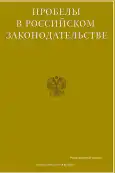The Goals of Functional Training in the Process of Training Students of Educational Organizations of the Ministry of Internal Affairs of Russia
- Authors: Yaroslavskiy M.A.1
-
Affiliations:
- Krasnodar University of the Ministry of Internal Affairs of Russia
- Issue: Vol 16, No 5 (2023)
- Pages: 66-70
- Section: Current problems of training and development of internal affairs staff in modern conditions
- URL: https://journal-vniispk.ru/2072-3164/article/view/250122
- EDN: https://elibrary.ru/ZWHYUE
- ID: 250122
Cite item
Abstract
Inherent from birth, as well as acquired in the course of many years of testing in training, the possibilities for the manifestation of physical qualities are largely based on the general state of the body, determined by the degree of debugging of the biological processes occurring in it.
This article substantiates that the priority development, for example, of strength (or endurance, speed, coordination in space) over other parameters, albeit taking into account the genetic and physiological predisposition, can first of all be achieved due to the correct construction of the training process with a clear formulation training tasks. At the same time, regardless of the type of training, the potential of a particular athlete in relation to receiving a training load and overcoming various types of resistance is uncontestedly correlated with the functional capabilities of his body, the consideration of which in sports is necessary to solve the tasks, maintain health and prevent possible injuries. [10]
We concluded that within the framework of considering students of educational organizations of the Ministry of Internal Affairs of Russia as the target audience, it is appropriate, expedient, and also useful from the standpoint of increasing the efficiency of the subsequent implementation of professional functions, in the course of practical exercises to improve general physical fitness, to apply the so-called functional training.
Full Text
##article.viewOnOriginalSite##About the authors
Mikhail A. Yaroslavskiy
Krasnodar University of the Ministry of Internal Affairs of Russia
Author for correspondence.
Email: propast07@mail.ru
Police Captain, Lecturer of the Department of Physical Training, North Caucasus Institute for Advanced Studies (branch)
Russian Federation, Nalchik, KBRReferences
- Order of the Ministry of Internal Affairs of Russia No. 450 dated July 1, 2017 "On approval of the Manual on the organization of physical training in the Internal Affairs bodies of the Russian Federation".
- Bezborodov N.A., Zazulina E.V. Modern technologies in sports // Modern school of Russia. Modernization issues. 2022 №.3-2 (40).
- Beshtoev R.O. Improvement of speed and strength qualities in physical training of students of educational organizations of the Ministry of Internal Affairs of Russia // Gaps in Russian legislation. 2020. Vol. 13. №. 4.
- Gubzhokov A. H., Dadov A.V. Methods of optimizing physical training of employees of law enforcement agencies of the Ministry of Internal Affairs of Russia // Innovations and traditions in modern education, psychology and pedagogy: collection of articles of the International scientific and practical conference. Orenburg, 2017.
- Dottuev T.I. On some features of professional and applied training of employees of the internal affairs bodies of the Russian Federation / Physical education and sport: current issues of theory and practice [Electronic edition]: collection of materials of the All-Russian Scientific and Practical Conference (Rostov-on-Don, April 5, 2018).
- Kardanov A.K. On some issues of the use of distance learning technologies in the educational process of the system of the Ministry of Internal Affairs of Russia // Eurasian Legal Journal. 2021. № 9 (160).
- Krymshokalov A.Z., Gubzhokov A.H. The use of digital technologies in the organization of physical training classes // Physical culture and health. 2021. № 1 (77).
- Tkhazeplov R.L. Actual issues of formation of applied motor skills among police officers in physical training classes // Pedagogical Journal. 2019. Vol. 9. №. 5-1.
- Khazhirokov V.A. Organization and improvement of physical training skills of students studying at universities of the Ministry of Internal Affairs of Russia // Education. The science. Scientific personnel. 2019. № 1.
- Yaroslavsky M.A. Methodology and intensity of the load during the training of speed and strength qualities // PHYSICAL EDUCATION AND SPORT: TOPICAL ISSUES OF THEORY AND PRACTICE collection of scientific papers of participants of the All-Russian Scientific and practical Conference. 2017., Rostov-on-Don.
- Yaroslavsky M.A., Tkhagalegov A.A. Professionally significant physical qualities of police officers: ways of formation and improvement // In the collection: Innovations in Science and practice. Collection of works based on the materials of the VI All-Russian competition of scientific research works. Ufa, 2021.
- Yakhutlova E.B., Cherkesov R.M. Ways of improving motor skills and abilities in physical training classes // Physical culture and health. 2020. № 4 (76).
Supplementary files








